-
Towards a theory of ‘Big plastic’ Rev. Int. Polit. Econ. (IF 3.7) Pub Date : 2025-05-30
Babet De Groot, Robert MacNeil -
Permafrost, Science, and Security: Producing Climate (Non)Knowledge in a Thawing City International Political Sociology (IF 3.5) Pub Date : 2025-05-28
Lin Alexandra MortensgaardThis paper asks how and by whom knowledge on permafrost thaw is produced, and how politics is implicated in this (non)knowledge production. Through interviews and fieldwork in Fairbanks, Alaska, the paper argues that knowledge production on climate change should interest International Relations (IR) much more than it does. What is at stake is IR's ability to discern which political actors and priorities
-
Private and public governance of decent work in regional and domestic value chains: the case of horticulture and garments in Sub-Saharan Africa Rev. Int. Polit. Econ. (IF 3.7) Pub Date : 2025-05-27
Matthew Alford, Stephanie Barrientos, Shane Godfrey, Khalid Nadvi, Maggie Opondo, Margareet Visser -
The dog that does not bark – Weaponised interdependence and digital trade at the World Trade Organization Rev. Int. Polit. Econ. (IF 3.7) Pub Date : 2025-05-27
Nora Kürzdörfer -
The Argumentative Power of International Law: Legal Rhetoric, Human Rights, and the Universal Periodic Review International Studies Quarterly (IF 2.4) Pub Date : 2025-05-27
Kyle ReedWhat makes a human rights argument effective? When challenging a state's human rights practices, actors can draw on a range of discursive options and frames. Current research on human rights argumentation highlights the strategic use of different rhetorical frames by actors to create political outcomes on a case-by-case basis. This analysis, however, is the first to measure the determinants of effective
-
Ethnic Accommodation and the Backlash From Dominant Groups Journal of Conflict Resolution (IF 2.2) Pub Date : 2025-05-23
Andreas JuonWhen does the accommodation of subordinate ethnic groups generate a backlash from the politically dominant group? I argue that power-sharing, regional autonomy, and multiculturalism lend themselves to the articulation of grievances and fears among members of dominant groups, especially if they explicitly recognize subordinate groups’ collective identities. In turn, nationalist parties can exploit such
-
From Gridlock to Ratchet: Conditional Cooperation on Climate Change International Organization (IF 8.2) Pub Date : 2025-05-22
Sam S. RowanClimate treaties have progressed over time to pledge substantial reductions in global warming. This is surprising, given that theories of climate politics emphasize collective-action problems and domestic deadlock. I first describe the process of updating climate mitigation targets under the Paris Agreement. Then I develop a theoretical argument that explains target changes based on how countries are
-
From domestic power to international subordination: the uses and impact of corporate bond issuance in emerging capitalist economies Rev. Int. Polit. Econ. (IF 3.7) Pub Date : 2025-05-22
Elif Karaçimen, Joel Rabinovich -
Accounting for variability in conflict dynamics: A pattern-based predictive model Journal of Peace Research (IF 3.4) Pub Date : 2025-05-22
Thomas Schincariol, Hannah Frank, Thomas ChadefauxExisting models for predicting conflict fatalities frequently produce conservative forecasts that gravitate towards the mean. While these approaches have a low average prediction error, they offer limited insights into temporal variations in conflict-related fatalities. Yet, accounting for variability is particularly relevant for policymakers, providing an indication on when to intervene. In this article
-
Supporting reparations after armed conflict: How discursive ‘memory battles’ affect political solidarity with Guatemalan Indigenous survivors Journal of Peace Research (IF 3.4) Pub Date : 2025-05-22
Elke Evrard, Gretel Mejía BonifaziLiterature on survivor mobilization in transitional justice contexts has largely overlooked the relevance and dynamics of solidarity-based support by non-victimized groups. This article studies the relation between contentious processes of discursive ‘memory-making’ and public support for reparations in post-conflict Guatemala. Using a nationwide survey-embedded experiment with 300 respondents, we
-
The empty signifier of ‘connectivity’: how infrastructure reorders the world Rev. Int. Polit. Econ. (IF 3.7) Pub Date : 2025-05-21
Mohammadbagher Forough, Anna Fünfgeld -
Austerity governance and the performance anxieties of the tax state Rev. Int. Polit. Econ. (IF 3.7) Pub Date : 2025-05-21
Ian Lovering -
Tasting Tears at the Sharjah Biennial: The International Political Economy of Postcolonial and Decolonial Art International Political Sociology (IF 3.5) Pub Date : 2025-05-21
Maia Holtermann EntwistleThis article concerns the challenge of making postcolonial and decolonial art under postcolonial capitalism. A pioneer in the Gulf's growing art scene, the Sharjah Biennial has carved a niche for itself as an incubator of postcolonial and decolonial art. This article first locates the biennial's focus within the trajectories of postcolonial, decolonial, and Black radical theory across the increasingly
-
The Prodigal Child Returns? Attitudes towards Return Migration in a Developing Economy International Studies Quarterly (IF 2.4) Pub Date : 2025-05-21
Melle ScholtenData estimates suggest that up to half of all migrants return to the country of origin within 5 years of leaving. Return migration is known to be a boon for the local economy and a catalyst for political reform. However, these effects are conditional on successful reintegration, which is dependent on the preferences of nonmigrants. What causes negative attitudes towards return migration, given its
-
Nonstate Actor Inclusion and the Social Legitimacy of Global Governance Institutions International Studies Quarterly (IF 2.4) Pub Date : 2025-05-21
Matthias Ecker-Ehrhardt, Soetkin Verhaegen, Sigrid QuackNonstate actors play powerful roles in global governance institutions (GGIs) as advocates, experts, representatives, regulators, monitors, and implementing agents. However, the extent to which their inclusion affects the degree to which citizens find GGIs more legitimate has not been systematically investigated, nor have the conditions under which citizens might do so. In this contribution, we theoretically
-
Pierre Bourdieu, Colonial Experiences, and Methodological Reflexivity in International Relations International Political Sociology (IF 3.5) Pub Date : 2025-05-19
Leonie HolthausThis article asks what reflexive practices one can learn from, with and against Pierre Bourdieu’s works on and in Algeria and later contributions. Addressing the question enables a revision of Bourdieusian reflexivity and a new contribution to the methodological reflexivity debate in international relations (IR) and International Political Sociology (IPS). It furthers the identification of three reflexive
-
“Protecting” Rights of Smuggled Migrants in the Context of State-Enforced Immobility: Legal Borderwork in Senegal International Political Sociology (IF 3.5) Pub Date : 2025-05-19
Leonie Felicitas JegenHuman rights rationales have in recent years been increasingly mobilized in international efforts to bring national legal frameworks on migrant smuggling in line with international law. This article explores the role of human rights in borderwork during the externally funded legal reform process of Senegal's legal framework on migrant smuggling. Adopting a multiscalar governmentality lens, it sheds
-
The end of rebel rule: Biased peacekeeping interventions and social order Journal of Peace Research (IF 3.4) Pub Date : 2025-05-16
Jason HartwigSince 2001, the United Nations Security Council has increasingly authorized interventions in support of a government. However, the potential impact of this trend on civil war processes is underexamined. I argue that biased peacekeeping interventions can undermine social order when replacing rebel territorial control. Interventions become associated with weak and predatory client governments, fail to
-
War, social preferences, and anti-outgroup behavior: Experimental evidence from Russia’s invasion of Ukraine Journal of Peace Research (IF 3.4) Pub Date : 2025-05-16
Sam Whitt, Douglas PageHow does war affect social preferences toward people with conflict-related outgroup identities? While the literature often reports prosocial treatment of ingroups, such benevolence is rarely seen toward potential outgroups. We consider the case of Ukraine, where many people with Russian identity markers reside. We ask whether people in Ukraine who identify as Russian by ethnicity or language have become
-
Shock and awe: Economic sanctions and relative military spending Journal of Peace Research (IF 3.4) Pub Date : 2025-05-16
Yuleng Zeng, Andreas DürEconomic sanctions could cause substantial harm to target states, forcing them to undertake tough guns-versus-butter trade-offs. Although existing research has argued that sanctioned countries reduce their military spending in absolute terms, it is unclear whether they do trade more guns for butter in relative terms. We argue that in the short run, sanctioned states have an incentive to channel proportionally
-
Women’s roles and reproductive violence within armed rebellions Journal of Peace Research (IF 3.4) Pub Date : 2025-05-16
Lindsey A GoldbergWhy do armed rebel movements perpetrate intragroup reproductive violence? While extant research predominantly focuses on wartime sexual violence against civilians, the targeting of rebel women with reproductive violence remains underexplored. My research contributes new insights on how women’s idealized roles within armed rebellions shape the likelihood of these groups engaging in various forms of
-
Knowing What We Don’t: The Fundamental Problem of Data Quality in Conflict Research—and Methodological Solutions Journal of Conflict Resolution (IF 2.2) Pub Date : 2025-05-16
Rachel SweetConflict researchers face an unresolved dilemma: the underlying data are often unreliable. When it comes to covert relationships, killings, and illicit markets that organized violence entails, there are simply more incentives to alter information than to tell it straight. How confident can scholars be that on-the-ground events, rather than strategic or omitted information, drive research findings?
-
The Effect of Reciprocity on Trust: International Cooperation and COVID Aid Journal of Conflict Resolution (IF 2.2) Pub Date : 2025-05-14
Andrew Roskos-Ewoldsen, Morgan Ellithorpe, Brandon J KinneReciprocity is a well-known influence on international cooperation. However, we lack an explanation for how reciprocity at the international level affects individual beliefs and attitudes. How do people interpret situations where countries return favors, or fail to? In this study, we present a micro-level explanation of reciprocity based on the theoretical framework of Unbounded Generalized Reciprocity
-
Malnutrition and violent conflict in a heating world: A mediation analysis on the climate–conflict nexus in Nigeria Journal of Peace Research (IF 3.4) Pub Date : 2025-05-13
Anna Belli, Victor Villa, Marina Mastrorillo, Antonio Scognamillo, Chun Song, Adriana Ignaciuk, Grazia PacilloClimate variability is increasingly gaining recognition as a factor exacerbating risks to peace in Africa, particularly in contexts characterized by weak institutions and fragile agri-food systems. Existing literature has highlighted the intricate indirect pathways that can lead to increasing conflicts following a climatic shock, including reduced agricultural yields, increased food insecurity, and
-
Trained to rebel: Rebel leaders’ military training and the dynamics of civil conflicts Journal of Peace Research (IF 3.4) Pub Date : 2025-05-10
Juliana Tappe OrtizRebel leaders can prolong civil wars. Although past research has examined how rebel groups have shaped civil wars, little attention has been paid to rebel leaders. I argue that civil wars last longer and are less likely to be terminated in government-favorable outcomes when rebel leaders with training in a nonstate armed group are in charge, in contrast to leaders with no training or state military
-
A Model of Long-Term Conflict Resolution and Cooperation Journal of Conflict Resolution (IF 2.2) Pub Date : 2025-05-10
David A. Peterson, Mirta Galesic, Ross A. HammondThe formal end of a political conflict does not always create lasting peace, as interpersonal violence can persist for years or decades after large-scale hostility ends. A key question for policymakers and peace builders, then, is how interventions into situations of low social capital might resolve persistent interpersonal conflicts sustained through complex networks of interaction. Existing approaches
-
How do higher-order punishment institutions shape cooperation and norm-enforcement? Rev. Int. Organ. (IF 4.5) Pub Date : 2025-05-09
Jan Philipp Krügel, Nicola MaaserWe explore, both theoretically and through a laboratory experiment, the impact of different forms of higher-order punishment on third-party behavior and cooperation levels within a public goods game. This investigation may shed light on how norms influence national governments, as monitored by international organizations or disciplined by electoral competition, and how these norms are subsequently
-
Presenting the Governmental Incompatibilities Data Project (GIDP) 2.0 International Studies Quarterly (IF 2.4) Pub Date : 2025-05-09
Peter B White, David E Cunningham, Kristian Skrede Gleditschs This research note introduces a new dataset—the Governmental Incompatibilities Data Project (GIDP) 2.0—which identifies the presence of incompatibilities over governments for all countries in the world from 1960 to 2020. Incompatibilities over government involve organizations making maximalist claims related to the legitimacy of elections, the composition of the national government, or regime change
-
Selling Violent Extremism Journal of Conflict Resolution (IF 2.2) Pub Date : 2025-05-09
Danny KlinenbergWhy do people join domestic violent extremist organizations? This paper examines an understudied reason: organizational outreach. I study how the inflow of new members to the Oath Keepers, until recently America’s largest paramilitary organization, changes when the group’s leadership employs three tactics: showcasing their ideological zeal through armed standoffs with the government, membership discounts
-
Decolonization legacies and financial contributions to international organizations Rev. Int. Organ. (IF 4.5) Pub Date : 2025-05-06
Joowon YiThis article examines why some states emerging through decolonization are more actively contributing to international organizations (IOs) than others, focusing on their voluntary financial contributions to the United Nations System (UN). I argue that the birth legacies of states, particularly modes of decolonization, significantly influence their subsequent financial contributions to the UN. A regression
-
The 2023/24 VIEWS Prediction challenge: Predicting the number of fatalities in armed conflict, with uncertainty Journal of Peace Research (IF 3.4) Pub Date : 2025-05-06
Håvard Hegre, Paola Vesco, Michael Colaresi, Jonas Vestby, Alexa Timlick, Noorain Syed Kazmi, Angelica Lindqvist-McGowan, Friederike Becker, Marco Binetti, Tobias Bodentien, Tobias Bohne, Patrick T. Brandt, Thomas Chadefaux, Simon Drauz, Christoph Dworschak, Vito D’Orazio, Hannah Frank, Cornelius Fritz, Kristian Skrede Gleditsch, Sonja Häffner, Martin Hofer, Finn L Klebe, Luca Macis, Alexandra MalagaGovernmental and nongovernmental organizations have increasingly relied on early-warning systems of conflict to support their decisionmaking. Predictions of war intensity as probability distributions prove closer to what policymakers need than point estimates, as they encompass useful representations of both the most likely outcome and the lower-probability risk that conflicts escalate catastrophically
-
-
Revisiting Embedded Liberalism: Does the Theoretical Possibility Meet Empirical Validity? Analyzing Labor Laws and Preferential Trade Agreements International Studies Quarterly (IF 2.4) Pub Date : 2025-05-06
Zhiyuan WangExtant scholarship on embedded liberalism (EL) emphasizes whether governments keep their promises to protect the risk-bearers of economic liberalization but overlooks its liberalization effect. In particular, scholars rarely explore how EL solves the time-inconsistency problem plaguing economic liberalization, i.e., governments may ex post renege on their policy promises made prior to the liberalization
-
Where Have All the Experts Gone? The Shifting Marketplace for Foreign Policy Ideas on Capitol Hill International Studies Quarterly (IF 2.4) Pub Date : 2025-05-05
Daniel W Drezner, Linda L Fowlers US foreign policy observers have noted a decline in the frequency of expert witnesses appearing before congressional committees, while congressional scholars have documented changes in committee practices that have led to fewer and shorter hearings. These trends interact in systematic ways, although their relationship has never been tested empirically. Using original data and micro-level measures
-
Reliable knowledge claims on the recruitment and use of children: An empirical perspective Journal of Peace Research (IF 3.4) Pub Date : 2025-05-03
Timothy Lynam, Dustin Johnson, Catherine Baillie AbidiThe risks of child recruitment by non-state armed groups are geographically, temporally and contextually situated. There are multilayered, multivariate arrays of risk factors associated with non-state armed groups, with conflicts, and with contexts. Using Bayesian network modelling with a global dataset of non-state armed group child recruitment practices between 2010 and 2022, we demonstrate the theoretical
-
On Nuclear Superiority and National Security Journal of Conflict Resolution (IF 2.2) Pub Date : 2025-05-03
Alexandre DebsDoes nuclear superiority improve national security? The Theory of the Nuclear Revolution (TNR) argues that it does not, but only after assuming that the nuclear balance is irrelevant militarily. Critics argue that it does, pointing at U.S. efforts to achieve nuclear superiority in the Cold War, when the nuclear stalemate was less stable than previously thought. Yet Washington could have been misguided
-
Domestic politics and international organizations Rev. Int. Organ. (IF 4.5) Pub Date : 2025-04-29
T. Renee Bowen, J. Lawrence Broz, Christina J. SchneiderThis introduction to the Special Issue reviews the existing literature on the domestic politics of international organizations (IOs), presenting them within a unified theoretical framework. We emphasize the central role of domestic forces in the study of IOs: how individual preferences are channeled through domestic political institutions, and ultimately inform a government’s foreign policy decisions
-
Who cares for the carers? Patriarchal contradictions and the reinvention of the global economy Rev. Int. Polit. Econ. (IF 3.7) Pub Date : 2025-04-29
Maria Tanyag -
Decarbonising national growth models: derisking, ‘hobbled states’, and the decarbonisation possibility frontier Rev. Int. Polit. Econ. (IF 3.7) Pub Date : 2025-04-24
Daniel Driscoll, Mark Blyth -
Performing trade: ‘Global Britain’ and the UK’s post-Brexit free trade agreements with Australia and New Zealand Rev. Int. Polit. Econ. (IF 3.7) Pub Date : 2025-04-24
Tony Heron, Gabriel Siles-Brügge, Darrin McDonald -
Explaining institutional change in global financial regulation Rev. Int. Polit. Econ. (IF 3.7) Pub Date : 2025-04-24
Simon Linder, Thomas Rixen -
Macrofinance and the green transformation: nudging, attracting, and coercing capital towards decarbonization Rev. Int. Polit. Econ. (IF 3.7) Pub Date : 2025-04-24
Leah Downey, Mark Blyth -
Tax games: the case of Ireland in the global dynamics of corporate taxation Rev. Int. Polit. Econ. (IF 3.7) Pub Date : 2025-04-24
Nessa Ní Chasaide, Seán Ó Riain -
A Dyadic Method to Investigate Voting Behavior in the Council of the European Union International Studies Quarterly (IF 2.4) Pub Date : 2025-04-24
Arash Pourebrahimi, Madeleine O Hosli, Jaroslaw Kantorowiczs Using a dyadic approach to explore voting behavior of European Union (EU) member states in the Council of the EU, we investigate the similarity in voting behavior of governments on three policy dimensions: left-right, authoritarian-libertarian, and pro-/anti EU. These policy dimensions are of interest also in other contexts, such as decision-making in international or regional organizations other
-
Innovation and Interdependence: Evidence from Gene-Editing Technology International Studies Quarterly (IF 2.4) Pub Date : 2025-04-24
Cleo O’Brien-Udry, Tyler PrattTechnological breakthroughs carry great promise but often escalate economic competition and heighten public anxiety, creating new challenges for governments. We argue that breakthroughs trigger two distinct mechanisms that reshape regulatory politics: (1) accelerated incentives for regulatory arbitrage and (2) the potential for controversies to spark international public backlash. First, technological
-
The Politics of Gender Mainstreaming in Foreign Aid International Studies Quarterly (IF 2.4) Pub Date : 2025-04-24
Simone Dietrich, Daniela Donno, Katharina Fleiner, Alice IannantuoniGender mainstreaming—the incorporation of a gender equality perspective into the design, implementation, and evaluation of all aid projects—has become a signature policy tool among Western donors. However, advancing gender equality can be politically contentious and lead to backlash, particularly in autocratic regimes where women’s socioeconomic status is low. We argue that donors’ desire for recipient
-
Violence as a Constitutive of States International Political Sociology (IF 3.5) Pub Date : 2025-04-22
A M AbozaidIs the state monopoly on the use of legitimate violence a modern invention that refers exclusively to a particular provincial sociohistorical phenomenon that emerged in seventeenth-century Europe? The answer this paper presents is no. Instead, I argue that the canonical Eurocentric epistemic communities have sought to displace other systems of governance and administration and replace them with European
-
The Racial Visual Imaginary of International Relations International Political Sociology (IF 3.5) Pub Date : 2025-04-21
Yoav GalaiVisual politics is a thriving subfield of international relations (IR) that traces its origin to the “visual turn” at the turn of the century. However, visual politics hardly engages with the central visuality of modernity: race. This article argues that visual politics has a longer history than the current disciplinary history suggests, and it deploys a sociographical analysis to explore the central
-
Necropolitics and Necropolice: Death, Immortality, and Art-Activism in Russia International Political Sociology (IF 3.5) Pub Date : 2025-04-21
Vladimir OgulaThis article explores the affirmative dimension of necropolitics by looking at the articulation of the dead as an aesthetic and political subject in the work of the art-activist collective “the party of the dead.” Since 2017, their performances have exposed and challenged an aesthetic order based on the erasure of mortality in Russia. I draw on Rancière’s distinction between “politics” and “the police”
-
Expanding the Peace Accords Matrix Implementation Dataset: Partial peace agreements in the Comprehensive Peace Agreement negotiation and implementation process, 1989–2021 Journal of Peace Research (IF 3.4) Pub Date : 2025-04-19
Madhav Joshi, Matthew Hauenstein, Jason QuinnThis article presents an expansion of the Peace Accords Matrix Implementation Dataset, incorporating data on partial agreements and newly established Comprehensive Peace Agreements. The new Peace Accords Matrix Implementation Dataset now includes coding for 51 provisions across 42 Comprehensive Peace Agreements and 236 partial peace agreements (with 78% of these negotiated prior to the Comprehensive
-
The challenges of surveying in war zones: Lessons from Ukraine Journal of Peace Research (IF 3.4) Pub Date : 2025-04-19
Kit Rickard, Gerard Toal, Kristin M Bakke, John O’LoughlinConflict scholars commonly employ public opinion surveys to understand the causes and consequences of violence. However, surveying in wartime presents a distinctive set of challenges. We examine two challenges facing polling in countries at war: under-coverage of national samples and response bias. Although these issues are acknowledged in the literature on surveying methods, they become significantly
-
Multidimensional effects of conflict-induced violence on wartime migration decisions: evidence from Ukraine Journal of Peace Research (IF 3.4) Pub Date : 2025-04-19
Yuliya Kosyakova, Irena Kogan, Frank van TubergenThis study makes three key contributions to the literature on the effect of conflict-induced violence on wartime migration. First, while conflict-induced violence is often treated as a monolithic factor, we consider conflict-induced violence as multidimensional, varying in intensity, type and proximity. Second, by including both movers and stayers, we address the mobility bias prevalent in the literature
-
The Politics of Fear and Hate: Experience, (De)Legitimization, and (De)Mobilization International Political Sociology (IF 3.5) Pub Date : 2025-04-17
C Nicolai L GellwitzkiCritical security studies and emotion research in international relations have highlighted that the emotion of fear is a pivotal driver of material and psychological securitization processes and that political actors may attempt to instrumentalize fear to obtain their political objectives. This article suggests that complementing this focus on fear with closer attention to the emotion of hate provides
-
2024 Susan K Sell best reviewer award Rev. Int. Polit. Econ. (IF 3.7) Pub Date : 2025-04-15
Juanita Elias, Aida A. Hozić, Alison Johnston, Seçkin Köstem, Manuela Moschella, Stefano Ponte, Hongying Wang, Kevin L. Young -
2024 Timothy Sinclair best article award Rev. Int. Polit. Econ. (IF 3.7) Pub Date : 2025-04-15
Juanita Elias, Aida A. Hozić, Alison Johnston, Seçkin Köstem, Manuela Moschella, Stefano Ponte, Hongying Wang, Kevin L. Young -
International Human Rights Law and Women’s Access to Abortion International Studies Quarterly (IF 2.4) Pub Date : 2025-04-10
Amelia Gaudio, Ryan M WelchCan international law protect abortion rights? Drawing from past work on domestic mechanisms that give international law teeth, we argue that a strong civil society composed of women's groups and groups concerned with women's rights leads the government to comply with its international human rights commitments to women, specifically their right to abortion. Unlike that past work, though, we draw attention
-
Feminist Foreign Policy as a Case of Governance Feminism: Neoliberalism, Militarism, and Women as “Agents of Change” International Studies Review (IF 3.1) Pub Date : 2025-04-09
Colleen Bell, Nicole WegnerA growing number of Western states are positioning feminism as the path to a more peaceful and prosperous world. In this article, we examine Canada's feminist foreign policy agenda as an instance of governance feminism, whereby the normative commitment to gender equality is pursued by governing women's agency. We conduct a qualitative discursive analysis of eleven key policy documents spanning development
-
Beyond the Binary: A New Typology for Evaluating Warning Success and Failure in Strategic Surprise International Studies Review (IF 3.1) Pub Date : 2025-04-09
Nikki IkaniWhy do some intelligence warning processes succeed in anticipating surprise while others fail? This article challenges the binary perspective on warning success and warning failure prevalent in extant analyses, which it contends ignores the complexity of warning processes and their outcomes. Its main thesis is that warning success rather exists on a spectrum of outcomes from full success to complete
-
A credit theory of anti-credit money: How the cryptocurrency sphere turned into a shadow banking system Rev. Int. Polit. Econ. (IF 3.7) Pub Date : 2025-04-08
Christopher Olk, Louis Miebs -
Revisiting Central Bank Independence in the World: An Extended Dataset International Studies Quarterly (IF 2.4) Pub Date : 2025-04-08
Ana Carolina Garrigas How has central bank independence (CBI) changed over time and across countries? This paper introduces the most comprehensive dataset on de jure CBI, including country-year observations covering 192 countries between 1970 and 2023. The dataset identifies statutory reforms affecting CBI, their direction, and codes four dimensions of CBI (personnel independence, central bank's objectives, policy formulation






























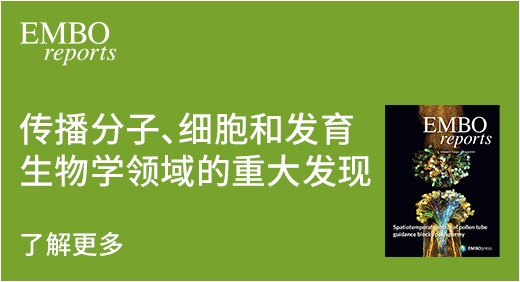
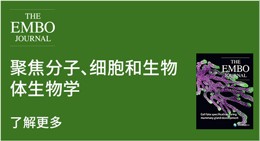





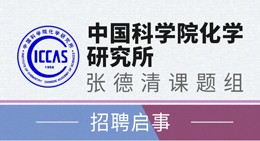


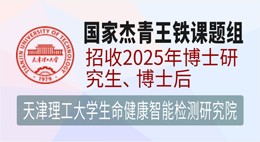




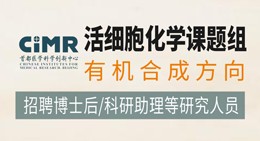
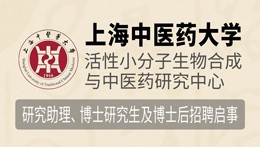



 京公网安备 11010802027423号
京公网安备 11010802027423号